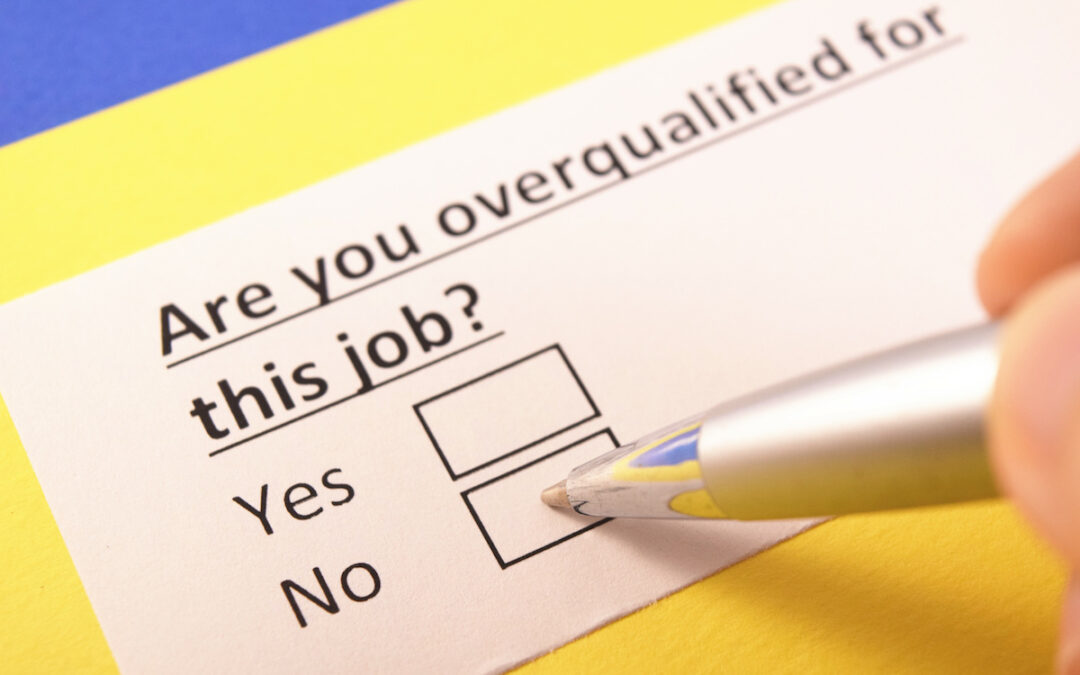It seems like the more qualifications you have for a job, the more likely you are to land it—which seems to make sense at first glance. But in fact, when your qualifications are too impressive, you may be hurting your chances of getting hired or promoted. That’s because as soon as an employer realizes how overqualified you are, they might become worried that they can’t give you enough work to do or that they can’t pay you enough salary to justify hiring you.
Why I Was Very Overqualified for This Job
I was recently interviewing for a job that I was very overqualified for. I had applied because the hours were great, and it was close to my house.
I went in for the interview, and they asked me why I thought I should get the job. I gave them all the reasons that were on the job posting. The interviewers looked unimpressed.
Then they started asking me about my experience and qualifications. It quickly became apparent that they thought I was too qualified for the position.
They asked me if I would be willing to take a pay cut, and I said no. They told me that they would keep my resume on file and let me know if anything opened up that was a better fit.
Legendary bodybuilder cedric mcmillan has passed away at age 44 what does tren do 2 cities, 2 murders: police arrest national bodybuilder in double murder caseI left the interview feeling deflated.
2 Ways to Deal with Being Overqualified
- If you’re applying for a job a little below your skill level, be honest about your qualifications and explain why you’re interested in the position.
- You can also try to reframe your experience in a way that makes you a more attractive candidate. For example, if you’re applying for a customer service job, highlight the times when you’ve gone above and beyond to help someone. Mention specific examples of how you went out of your way to provide excellent customer service.
3 Benefits of Being Overqualified
Though it may seem bad, there are some benefits to being overqualified for a job. For one, you’re likely to have a higher level of experience than the average candidate. This can be an asset to the company, as you’re more likely to be able to hit the ground running and be productive from day one. Additionally, you may also have a better understanding of the company’s mission and values and how your role fits into that bigger picture. Finally, being overqualified can signal to the employer that you’re committed to the position and will likely stick around for the long haul.
4 Reasons Why Employers Fear Applicants Who Are Too Qualified
- They’re afraid the person will get bored and leave.
- They think the person will be unhappy with the salary or working conditions.
- They’re worried the person will have a hard time adjusting to a new company culture.
- They think the person might not be able to handle the work if it’s below their skill level.
Employers fear applicants who are too qualified because they believe that people who are too qualified for a job position won’t stay long, are unlikely to be happy with the pay, won’t adapt well to the corporate culture, and may not perform well on tasks that are below their skill level.
5 How You Can Turn This Into An Advantage
- Use your vast experience to your advantage.
- Let the hiring manager know that you’re the perfect candidate for the job.
- Be honest about your qualifications and what you can bring to the table.
- Prove that you’re not just looking for any job, but this job.
- Don’t let your overqualifications intimidate the hiring manager – use them to sell yourself as the best candidate for the job!
Conclusion
In conclusion, being overqualified for a job can often result in not getting the position. This is because employers may feel you will get bored with the work, you will be unhappy with the pay, or you will eventually leave for a better opportunity. While there are some positives to being overqualified, such as having more experience than others, it is important to keep in mind the potential negatives when applying for jobs.




